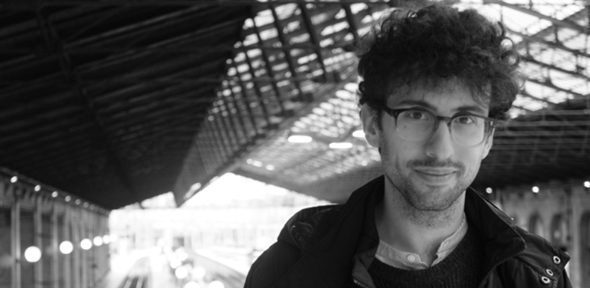
Faculty of Modern and Medieval Languages and Linguistics Raised Faculty Building University of Cambridge Sidgwick Avenue Cambridge CB3 9DA United Kingdom
Dr Crisafi is a Research and Teaching Fellow in Italian and Director of Studies of Modern Languages at Pembroke College. He researches medieval Italian literature, with a special focus on the works of Dante Alighieri and venturing into the writings of Petrarch and Boccaccio.
Dr Crisafi's teaching specializations are on Dante and the late Middle Ages with additional experience in modern Italian literature. In 2021-2022 he teaches:
- Dante’s Vita nova and Petrarch’s Canzoniere as part of IT4: Autobiography and Self-Representation in Italian Culture;
- Boccaccio’s Decameron as part of IT5: Italian Identities: Place, Language, and Culture;
- ITB1: Use of Italian
He welcomea queries from current and prospective students of all backgrounds, identities, and creeds.
Dr Crisafi researches medieval Italian literature, with a special focus on the works of Dante Alighieri and venturing into the writings of Petrarch and Boccaccio.
His interests lie in narrative theory, the role of the reader(s), the relation between language and affect, and the intersection between narrative forms and worldviews. His monograph Dante’s Masterplot and Alternative Narratives in the ‘Commedia’, forthcoming with OUP, explores paradoxes, detours, and representations of the future as alternatives to the dominant narrative of the Commedia: the teleological ‘masterplot’.
Dr Crisafi's current project ‘Possibility and the Utopian Imagination in the Poetic Practice of Dante, Petrarch, and Boccaccio’, started while a fellow at ICI Berlin (2018–2020), investigates the narratives of possibility and their political implications in the late middle ages.
- Dante’s Masterplot and Alternative Narratives in the ‘Commedia’ (Oxford: OUP, forthcoming)
- ‘The Episode of the Gabbo: Cavalcantian Transfigurations, Gendered Addresses, (Mis)interpretation in The ‘Vita nova’: A Collaborative Reading, ed. by Zygmunt Barański, David Bowe, and Heather Webb (Notre Dame, IN: Notre Dame University Press, forthcoming)
- ‘Interrupted and unfinished: The Open-ended Dante of the Commedia’, in Openness in Medieval Culture, ed. by Manuele Gragnolati and Almut Suerbaum (Berlin: ICI Berlin, forthcoming)
- ‘Defascistizzare Dante’, in Jacobin Italia (2 June 2021)
- ‘The Master Narrative and its Paradoxes’, in The Oxford Handbook of Dante, ed. by Manuele Gragnolati, Elena Lombardi, and Francesca Southerden (Oxford: OUP, 2021)
- ‘Weathering the Afterlife: Language, Subjectivity, and tempo in Dante Commedia’, with Manuele Gragnolati, in On Weathering, ed. by Christoph Holzhey and Arnd Wedemeyer (Berlin: ICI Berlin, 2020), pp. 63–91
- ‘Guai narrativi nella cornice dei superbi: Cattiva infinità, teleologia, e possibilità’, Chroniques Italiennes, 39.2 (2020), 242–260
- ‘Lust and Law: Reading and Witnessing in Inferno 5’, with Elena Lombardi, in Ethics, Politics, and Justice in Dante, ed. by Catherine Keen and Giulia Gaimari (London: UCL Press, 2019), pp. 63–79
- Review of Tristan Kay, Dante’s Lyric Redemption: Eros, Salvation, Vernacular Tradition (Oxford: OUP, 2016), in Modern Languages Review, 114.2 (2019), 383–384
- Review of Heather Webb, Dante’s Persons: An Ethics of the Transhuman (Oxford: OUP, 2016), in L’Alighieri, 49 (2017), 149–154


